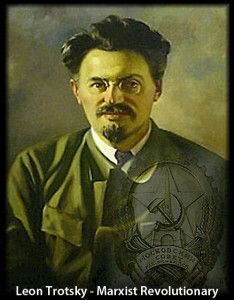Philippine President Tilts Toward China and Russia
IN AN ABSOLUTELY SURPRISING MOVE REVERBERATING around the globe, Rodrigo Duterte recently elected president of the Philippines (May 9, 2016), and a leader who has an unusually high 85% approval rating, has announced his rejection of liberalism and his intention to newly align his country with China and Russia. On October 19, 2016 Duterte openly declared
- “I will break up with America,” adding that he would rather “go to Russia and to China.”
- “America has lost” and maybe I will also go to Russia to talk to Putin.” To tell him:
- “There are three of us against the world, China, the Philippines and Russia.”
- “In this venue, I announce my separation from the United States both in the military… but economics also.”
Referring to the United States Duterte stated:
“Your stay in my country was for your own benefit” … “So time to say goodbye, my friend.”
“I will not go to America anymore. I will just be insulted there.”
Like other world leaders in Nigeria, Hungary, Poland, Slovakia, China and Russia et al, Duterte slammed the United States for the arrogance with which it imposes its unwanted liberal policies on sovereign nations around the globe as if it were the world’s moral police force.
Jonathan Kwitny authored a book entitled “Endless Enemies” in which he described the Philippines as “the Zaire of Asia,” a country in which the United States engaged in covert political activity to manipulate politics and the economy in its favor.
“Every anti-guerrilla campaign has been victorious, and every election, real or rigged, has produced the winner the US government desired.”
Manipulation such as this helps the outside observer to understand why Duterte recently told President Obama to “go to hell” and refereed to him as a “son of a whore”. In September 2016 Duterte stated that he was “about to cross the Rubicon” with the United States and announced his intention to distance himself from Washington and to turn the country toward China and Russia.
Despite all his rhetoric, Duterte plans to maintain relations with the West to benefit his country as much as possible. According to Duterte’s Finance Secretary, Carlos Dominguez, and his Socioeconomic Planning Secretary, Ernesto Pernia:
“We will maintain relations with the West”…but we desire stronger integration with our neighbors. We share the culture and a better understanding with our region.”
Dominguez and Pernia indicated that the move is about improved business relationships and a desire for regional growth and integration. The Filipinos are also interested in Chinese capital investment and access to a regional market of 1.8 billion people.The National Economic and Development Authority referred to Duterte’s actions as a move toward “economic regional re-balancing.”
Dominguez further explained that Duterte is not altering the country’s foreign policy but “recalibrating” it to open the country to Asian markets.
“The President has indicated to us that he’d like to strengthen and exploit opportunities…in countries other than our traditional trading partners.”
So after all the bluster and bravado, the statements by Duterte seem calculated to increase good relations with China in hopes of profiting the Philippines. During the state visit Dominguez signed several significant agreements with his new Chinese partners: two are Memoranda of Understanding (MOU) on Financing Cooperation, and an Agreement on Economic and Technical Cooperation.
According to the ‘Manila Bulletin“, The first MOU, is with the Export-Import Bank of China (EXIM), which will permit EXIM to fund Filipino infrastructure, energy and agricultural projects.
The second MOU, was signed with Gao Hucheng, the Chinese Commerce Minister. This MOU provides financial support to conduct feasibility studies for major infrastructure, agriculture and rural development projects. Dominguez and Gao also signed an Agreement for Economic and Technical Cooperation. According to this agreement, China will grant approximately $700 million for anti-drug efforts underway in the Philippines and to strengthen law enforcement and security cooperation between the two countries. In all, the Chinese government has made $6 billion dollars in development assistance available to the Philippines and another $3 billion dollars in credits from the Bank of China to boost infrastructure projects in the Philippines.
Interview with Phillipine Finance Secretary Carlos Dominguez
These business deals, seem to support Duterte’s political rhetoric. A warning flag has been raised that could point to significant changes in Filipino foreign policy. Duterte is in favor of new partnerships contrary to American wishes and also in favor of a new tranche of investments, which will presumably involve the new Asian Infrastructure Investment Bank (AIIB) rather than continue relationships with worn out international institutions such as the IMF and World Bank who have left a bad taste in the mouths of Third World political leaders.
Moreover, four days prior to his departure for Beijing, Duterte had an interview with Hong Kong-based Phoenix Television during which he iterated his openness to joint military exercises with Russia and China and reiterated his intent to end war games with the United States.
Asked specifically if he would consider joint military drills with China or Russia instead of the United States, Duterte stated:
“Yes, I will. I have given enough time for the Americans to play with the Filipino soldiers.”
Then, referring to joint military exercises with the US he stated:
“This will be the last. It has been programmed. I do not want my soldiers to be humiliated.”
Moreover, The Philippine leader has also manifested a keen interest in purchasing Russian weapons. According to the Washington Post, on October 5 Duterte addressed the White House and US State Department on the matter:
“Although it may sound shit to you, it is my sacred duty to keep the integrity of this republic and the people healthy…. “If you don’t want to sell arms, I’ll go to Russia. I sent the generals to Russia and Russia said ‘do not worry, we have everything you need, we’ll give it to you.’ And as for China, they said ‘just come over and sign and everything will be delivered’,” Duterte previously stated that he wanted “cheaper weapons with no strings attached.”
All this comes at a time when Japan is openly planning a Peace Treaty with Russia. On Dec 3, Japanese Prime Minister Abe will meet with President Putin. According to STRATFOR (October 20, 2016):
“Both leaders see opportunity in cooperation; Russia, rich with energy but starved of foreign investment, is an ideal partner for Japan, hungry as it is for energy with money to burn. Trade between the two countries has quadrupled since 2006, reaching a record-high $34.8 billion in 2013.
“Russia has completed the infrastructure needed to handle 2.1 million barrels per day — nearly half of Russia’s overall oil export level of 4.8 million barrels per day. Of the 716,000 barrels per day that Russia exported in 2012, only 141,000 went to Japan — though now Russia has the capacity to send much more.
Russia is also looking to export natural gas to Asia as well.
Russian natural gas company Gazprom has announced it will build a 2,500-kilometer (1,553-mile) pipeline to the Pacific for the new natural gas supplies that it says will be online by 2016. Russia is now considering a liquefied natural gas facility at Vladivostok to handle part of the 25 billion-50 billion cubic meters that Gazprom plans to produce out of East Siberia. East Asia already receives small amounts of natural gas from Russia’s Sakhalin-2 project. Japan has increased its intake of Sakhalin-2 liquefied natural gas in recent years to 10 billion cubic meters annually compared to the 3 billion cubic meters it received before the Fukushima disaster.
The United States is not happy about these developments nor is it happy about the meeting between Putin and Abe that took place earlier this year in May.
“The (Japanese) prime minister has been bucking Washington’s pressure over Russia all year. U.S. President Barack Obama warned Abe not to visit Russia for a summit with Putin in May, but he did anyway” (STRATFOR October 20, 2016).
It seems that more and more people are bucking Washington these days. Deals such as these spell the political and economic death of liberalism in the South Pacific and Asia.
Our Lady promised an Era of Peace and She is keeping Her word. Liberalism, in the name of peace, is the world’s largest promoter of violence and war – so it has to become a thing of the past. Consequently we are witnessing its death around the globe in places such as the Philippines, Hungary, Poland, Slovakia and Nigeria while simultaneously witnessing the promised conversion of Russia.

 e mantle as Mother of the Holy Family. Saint Joseph and Jesus then made the sign of the cross over the world and disappeared. Then Jesus reappeared with Our Lady of Sorrows. Jesus blessed the world.
e mantle as Mother of the Holy Family. Saint Joseph and Jesus then made the sign of the cross over the world and disappeared. Then Jesus reappeared with Our Lady of Sorrows. Jesus blessed the world.